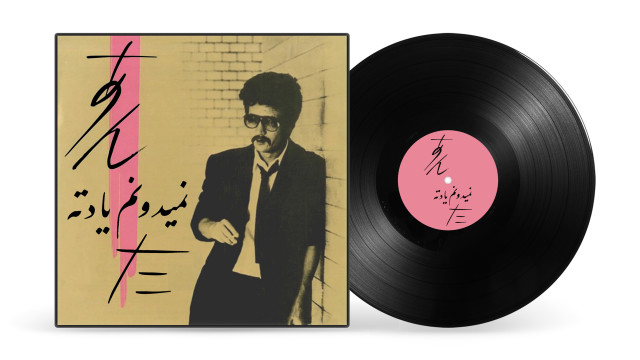Anahita Razmi's new series of work, رکوردھا / RECORDS / レコード, consists of an 'archive' of vinyl records which traces back instances of a long-standing Japanese-Iranian music history.
The question of "What if?" is pivotal in this doctored archive of records/record sleeves, through which Razmi fuses the documentary with the imaginary, further testing out the relationship between sound and vision.
In the online exhibition of the work, Razmi builds upon the non-existence of sound: she allows the viewer to muse upon plausible musical styles or arrangements through merely contextual information provided by the record sleeve design.
The vinyl itself and the sound inscribed into its grooves stays offline – the physical listening experience is solely available to the owner of the record.
Using strategies of collage and deconstruction and setting a boundary between the virtual and the physical experience of the work, رکوردھا / RECORDS / レコード proposes a mode of making, looking and listening that refuses to submit to common representational forms of display. Instead, possibilities for a 'speculative orientalism' in a pop-cultural past are tested out against the viewer's own perception and imagination.
One thereby becomes an agent for a constant re-imagining of the sound and a vibrant re-visioning of a culturally hybrid sonic.
Anahita Razmi has previously worked on projects linking Japan and Iran. From REIGN COATS (2018), a series of jinbaoris (traditional Japanese vest worn over a samurai's armor) made from 16th century Persian carpets which investigated the complex network of routes within the Silk Road, to THE FOOD CLUB / باشگاه غذا / フードクラブ (2019) a project that explored culinary hybrids and ruminated on a briefly shared Japanese-Iranian history.
In the same vein, رکوردھا / RECORDS / レコード follows Razmi's ongoing artistic practice; in which she examines how existing images, artefacts and thus, identities, can be scrutinized through their appropriation and hybridization.

